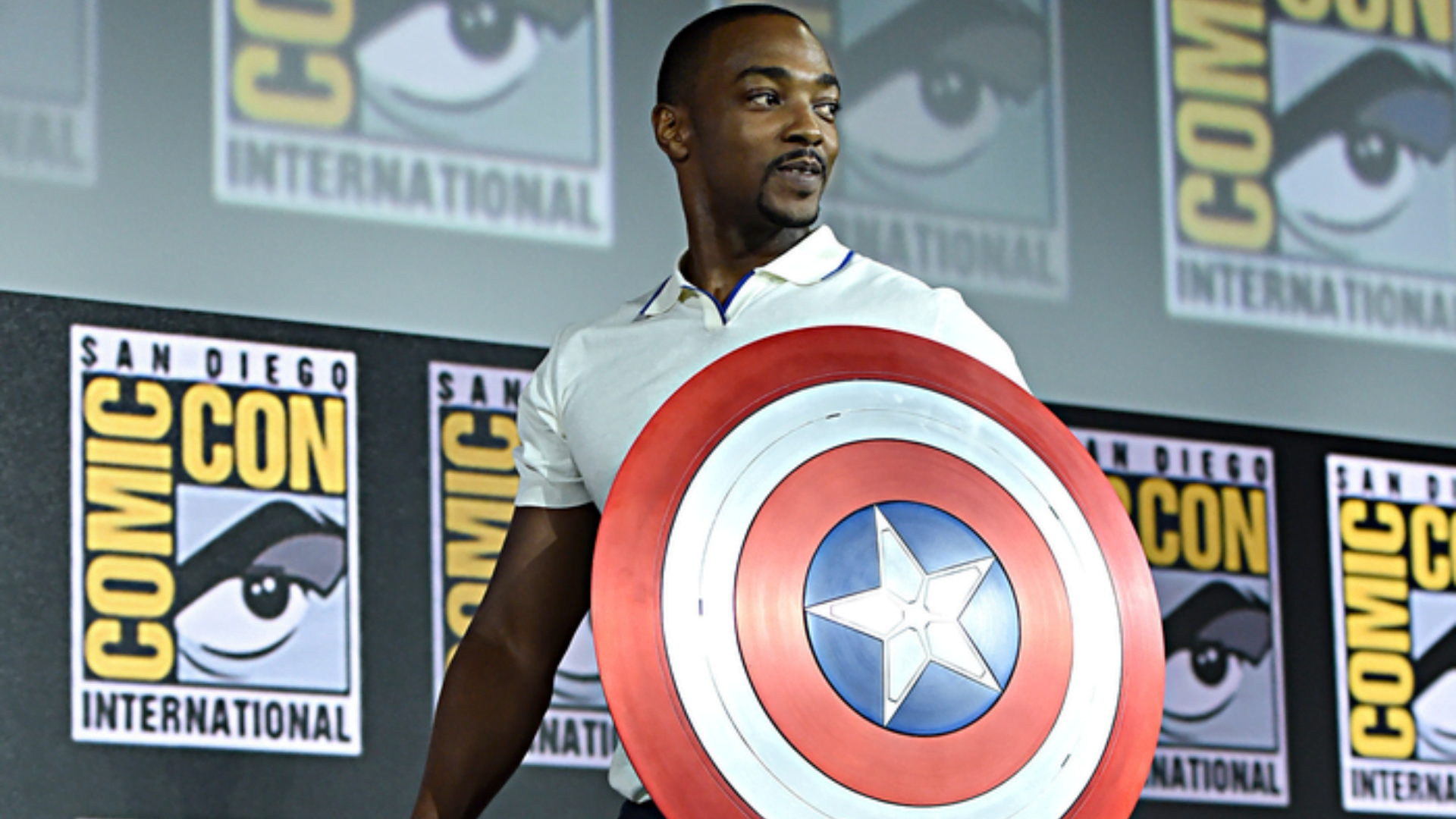The comic hero Captain America is more than a mere character; it is the American symbol of so-called traditional values and beliefs, even when some of it is almost unacceptable to half of the inhabitants of America. The character is modelled after the much cherished American Dream and the image of America as the superpower of the world, just like the hero made from the super-soldier serum invented to fight the Nazis in the Second World War.
Captain America is the most powerful and influencing figure of all the near ninety characters in the Marvel Cinematic Universe and controls the flow of the whole narrative. This domination shadowing the rest with different racial and ethnic origins in the visual representation is just a reflection of the realities. The politics of such supremacy, besides commercial benefits in the form of usable products, adds to ideological penetration or white affiliation subconsciously. This is a question that many keen observers and the subjects of such acts might have pondered over.
The Black question is aged as far as 500 years, and even after the Civil Rights Movement, it is true that many of the rights just remain in the paper. This injustice and agitation against it are suppressed in many minds in the U.S. Evidently, the climax scene of Avengers: Endgame (2019) was a reflection of it. At the same time, it infuriated and perplexed many. It was inaugurated in the launch of the series The Falcon and the Winter Soldier even in the covid times.
Captain America is the most powerful and influencing figure of all the near ninety characters in the Marvel Cinematic Universe and controls the flow of the whole narrative. This domination shadowing the rest with different racial and ethnic origins in the visual representation is just a reflection of the realities. The politics of such supremacy, besides commercial benefits in the form of usable products, adds to ideological penetration or white affiliation subconsciously. This is a question that many keen observers and the subjects of such acts might have pondered over.
It is uncommon for MCU or D.C.’s Black or ethnically different heroes, for that matter, to have back story representation. The series consists of six episodes that brush through the relevant scenes to visualise the transit of Sam Wilson from Falcon to Captain America.
The anti-Black feelings in the social scenarios of the U.S. force Sam to think that it will never make him fit in the eyes of the white people. This makes Sam respond that it seems to be someone else’s when Steve hands him the shield. This conflict leads to the rejection of the shield back to the museum, and Sam says, “Symbols are nothing without the women and men that give them meaning.” (Falcon and the Winter Soldier 01).
Shield held within the white hands of the blue-eyed blonde Steve Rogers gave him the agency to build allegiance and dignity, but if Sam substitutes him, he will not even get a space to project his concerns. This threatens Sam, and the only other solution available is a rejection of Black identity.
Black is not truly allowed to be black if one wants to succeed. Instead, one must find ‘less Black’ ways of existence to pass in white society, such as code-switching. This idea is supported by the fact that all representations of Blackness follow the unspoken agreement that Black heroes cannot take any attention away from their white heroes, and their origin story must be intriguing and compelling. (Wilson 17)
This happens with Sam; he is always just an archetype of a hero, not the hero. His position comes to play only with the death of Steve Rogers, the White Captain American who passes on his legacy for the purgation of his guilt.
Though just like the movies, this series too tries to whitewash Steve Rogers, it also throws light on many issues unspoken by him. His silence on the issues of racism, the Civil Rights Movement, and the experimented and tortured Blacks about whom he seems to be unaware. But, in choosing his heir, Steve seems to have known all but remained silent in protecting his own name and white privilege. This stands as an understatement throughout the series. But, this simple act cannot undo the injustice meted out to the Blacks, and this creates a dramatic dilemma for Sam. It is presented in the form of ‘Why did you give it back?’ and resonated throughout the series.
Sam is an example of intersectionality, where his ancestor’s acculturation has made him more than his race; he is many things which the white society cannot see. Another instance is when the police intercept Sam for shouting at Bucky on the road just because he is a Black, and moreover, the police do not recognise him as an avenger immediately. This implies the invisibility of his efforts among the white community, just like what Lemar, the Black sidekick of John Walker faces.
Some characters like Sharon call it Sam’s ‘hypocrisy’, though others never vocalise such a word. Though it is hypocrisy for the white characters, for Sam, it is something that Bucky (Winter Soldier) or Steve Rogers will never understand. For him, it is a sin to “…a Black man represent a country that does not represent him” (Marvel Studios Assembled: Falcon and the Winter Soldier).
Black experience and the burden the racialised people are forcefully subjected to make it impossible to think the box question for the whites. This, Bucky realises, only towards the end of the series.
Bucky or the Winter Soldier was also a sidekick of Steve but a white. Like the many white privileged characters of MCU, his character has an agency and status that marks him distinct throughout the movies. Unlike him, Sam is an obedient, loyal and unacknowledged assistant of Steve without any serums or super powers except for the electronic wings.
Sam is a strong character who firmly believes in himself, his routes and history; nevertheless, he is optimistic about harmonious co-existence. His beliefs are tested by the character of Isaiah Bradley, who says that they will never let a Black man be Captain America, and no self-respecting Black man will ever take up the task. Such a dilemma is brought to crisis and conclusion by the foil of Sam, John Walker.
John Walker is a special ops vet, testing off the charts in speed, endurance and intelligence, and also the winner of three medals of honour from the state. This, together with his white race, makes him eligible for the shield in the ‘colourblind’ eyes of the government.
The authorities will not even care to inform Sam about the replacement. This is because to them, as Senator says in the press meeting, “We need a person who embodies America’s greatest values. We need someone who can be a symbol for all of us” (Falcon and the Winter Soldier 01). And, clearly, given the prevalent racism, this someone can never be a Black man. It is further exemplified when the Senator thanks Sam for returning the shield by saying that it was the right decision.
It is a direct instance of institutionalised racism that percolates American society. There are also scenes that capture the micro aggression meted out to the Blacks, like when the Black kid calls Sam’ Black Falcon’, though he corrects him as just Falcon, the boy continues that his father asked him to call so.

Sam is an example of intersectionality, where his ancestor’s acculturation has made him more than his race; he is many things which the white society cannot see. Another instance is when the police intercept Sam for shouting at Bucky on the road just because he is a Black, and moreover, the police do not recognise him as an avenger immediately. This implies the invisibility of his efforts among the white community, just like what Lemar, the Black sidekick of John Walker faces.
The shield as a powerful symbol has an ironic connotation besides the general meaning of defence. It is a shade that covers and masks people behind it; the shield attracts attention on its carrier while the rest of the fighters, their narratives and struggles, are artfully covered from sight.
This is what happens to the story of the persecution of Isaiah; due to his race, he is prevented from being Captain America and thus, Steve becomes Captain. Isaiah’s Black life is a fetish for the whites, and he is just a body to experiment with and try for thirty long years. Thus, they prevent his story from circulating and plan to kill him, and luckily he escapes though he becomes frightened of the outside world. At last, it is upon the shoulders of Sam of the same race to find recognition for Isaiah because the whites are blind to his sacrifices.
The success of Sam in winning back the shield from John rests not with the state but with himself. He is the one who willingly puts it down, and he is the one who wins it back from the arrogant John, though he is reluctant. John, in many ways, lacks the quality to become Captain America; his essential character is that of a soldier who acts in tune with the commands, often retracting to aggression and unreasonable acts.
Sam is different to John but alike to Steve in many ways. He thinks before the act and tries to minimise the casualties and further development. But, John essentially thinks with his body and publicly kills one associate of the anti-hero with the shield. Thus, the shield is taken back by Sam. After Isaiah’s rejection of the shield, Sam understands what it can mean to his people; after all, they are called ‘his brothers (whites) keeper.’ For they built the country, bled for it, and now they are not turning their back on it.
Also read: Wonder Woman And The Refreshing Absence Of The Male Gaze
The complicated and conflicting legacy of the sword draws a conclusion of the sort with Sam taking it. But, this act does not make him a nationalist symbol or an heir to Steve, but a bridge between two races that strives to co-live in harmony, according to Sam. This anticipates the creation of multiple realities through multiple narratives so that the Black reality is at least not pitted against the white. Therefore, the words — ‘Reset, Restore, Rebuild’ as the slogan of the Global Repatriation Council for the dislocated in the series creates meaning not just for the dislocated but also for the people of America for a better future.
Anthony Mackie (who played Sam Wilson): “My truth has changed and evolved so much. As far as me being a father, as far as being a man, and as far as being an American. And a lot of that has come out of this role and this series. So, it’s been humbling in a real sense but also inspiring to think that my sons will be able to turn on the T.V. and see a Black Captain America.” (“Marvel Studio Assembled: The Making of the Winter Soldier”).
Also read: Wonder Woman — A History of Kink and Queer Erasure
Vidhupriya is a master’s holder in English Language and Literature from the Institute of English, University of Kerala. Currently, she is pursuing a Bachelor of Education from KUCTEK, University of Kerala.
Featured image source: Business Insider
About the author(s)
Vidhu (she/her) is an emerging writer with Masters in English language and literature, keen on learning the politics of the world around her. She has dreams to create a career in journalism and writing, where she unburdens her self. She has a great taste for movies from varies geographical spans and pens down poetry in magical charms. She is open to projects or research centring on humanities.





